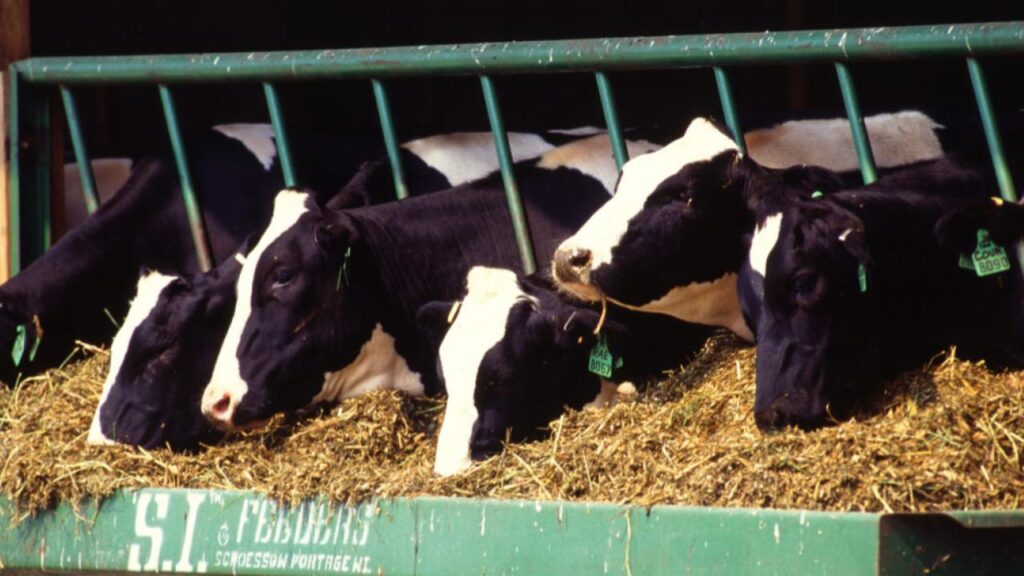A new bill in New York State aims to cap dairy farms at 700 cows to curb environmental damage and support small family farms. But upstate farmers warn it could devastate their livelihoods and the broader dairy economy.

NY Plans to Limit Dairy Cows
| Takeaway | Stat |
|---|---|
| Nearly half of NY dairy farms closed in 5 years | 43.5% decline |
| NY dairy industry’s annual contribution | $3.9 billion |
| Average size of large NY dairy farms | 1,200 cows |
The Proposed Cap: What’s in the Bill?
Introduced by NYC Democrats Sen. Jabari Brisport and Assemblywoman Linda Rosenthal, the bill (A.6928/S.6530) would prohibit the Department of Environmental Conservation from issuing new permits for large-scale dairy farms—specifically those with 700 or more cows. Existing farms would be grandfathered in, but any expansion beyond the threshold would be blocked.
The sponsors argue the measure is necessary to reduce methane emissions, prevent manure-related water pollution, and protect small farms from being squeezed out by industrial-scale operations. They cite a 21% increase in factory-farmed dairy cows between 2017 and 2021, alongside a 43.5% decline in the number of dairy farms during the same period.
Farmers Push Back: “We’re Not Factories—We’re Families”
Upstate lawmakers and dairy producers are pushing back hard. Assemblyman Chris Tague, a former dairy farmer, called the bill “an attack on New York’s family farms,” arguing that many large farms are multigenerational family-run operations, not corporate giants. Sen. George Borrello quipped that city lawmakers should “feel free” to limit the number of cows in Manhattan and Brooklyn.
David Fisher, president of the New York Farm Bureau, echoed that sentiment: “There is no factory. The ‘f’ should be replaced with ‘family.’ We’re all family businesses, multigenerational in many cases.”
Even some Democrats from upstate districts are opposing the bill. Assemblywoman Donna Lupardo, chair of the Assembly Agriculture Committee, criticized the proposal for being introduced without consulting the dairy industry. Assemblyman Billy Jones, raised on a family dairy farm, called the legislation “misguided.”
Environmental Concerns vs. Economic Realities
Proponents of the bill argue that large Concentrated Animal Feeding Operations (CAFOs) contribute significantly to environmental degradation, producing billions of pounds of manure annually and releasing substantial amounts of methane, a potent greenhouse gas.
However, many farmers contend that larger operations can better afford and implement environmentally friendly technologies. For instance, Jack Klapper of Noblehurst Farms in Linwood utilizes a methane digester that converts food waste and cow manure into renewable energy, powering between 300 to 500 homes. Such investments are often only feasible for larger farms.
Moreover, research indicates that precision-managed operations achieving higher milk yields per cow can deliver superior environmental outcomes compared to smaller, less efficient farms. These efficiencies often require scales exceeding the proposed legislative threshold.
Supply Chain Implications
The proposed cap could have significant ramifications for the dairy supply chain. Major processing facilities, like the upcoming $1.2 billion Chobani yogurt factory, are set to process 12 million pounds of milk daily. Meeting such demand necessitates large-scale milk production, which could be hindered by the 700-cow cap.
Assemblyman Joe Sempolinski highlighted that it takes 60,000 cows per day to supply milk to the Great Lakes Cheese Plant in Franklinville, emphasizing that family-run farms in Allegany, Cattaraugus, and Steuben counties are meeting this demand.
State Support Amidst Controversy
Amidst the debate, New York State announced $21 million in funding for over 100 dairy farms through the dairy modernization grant program. This initiative aims to help farms implement new equipment and technology to improve efficiency. Commissioner of Agriculture Richard Ball emphasized the state’s commitment to supporting farmers and enhancing the dairy industry’s capacity.
The Road Ahead
As the bill remains in committee, its future is uncertain. The debate underscores the tension between environmental objectives and economic realities in the agricultural sector. While the intent to protect the environment and small farms is clear, the potential economic impact on the state’s largest agricultural sector cannot be ignored.
FAQs
What is the proposed 700-cow cap in New York?
The proposed legislation would prohibit the Department of Environmental Conservation from issuing new permits for dairy farms with 700 or more cows. Existing farms would be grandfathered in, but any expansion beyond the threshold would be blocked.
Why are lawmakers proposing this cap?
Proponents argue the measure is necessary to reduce methane emissions, prevent manure-related water pollution, and protect small farms from being squeezed out by industrial-scale operations.
How are farmers responding to the proposal?
Many upstate farmers and lawmakers oppose the bill, arguing that larger farms are often family-run and that the cap could hinder economic growth and the implementation of environmentally friendly technologies.
What is the current status of the bill?
As of now, the bill remains in committee, and its future is uncertain. The debate continues among lawmakers, farmers, and environmental advocates.






